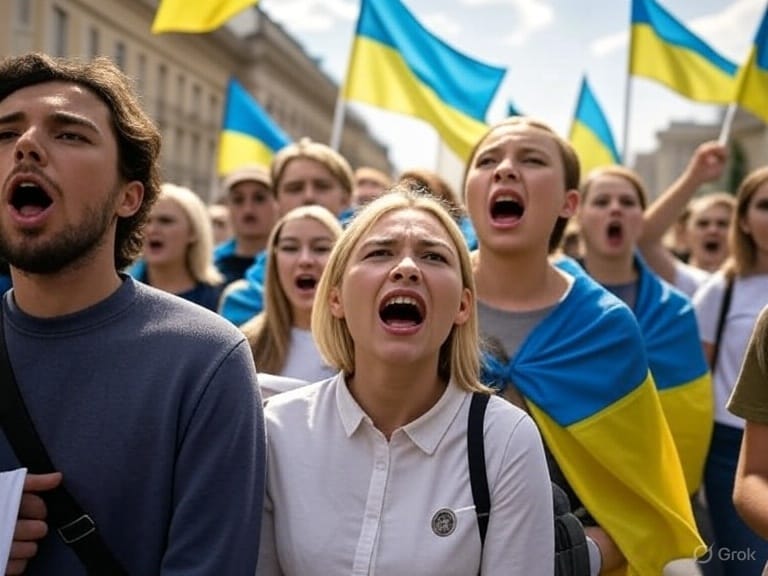- Shortlysts
- Posts
- Protests Erupt Against Ukrainian President Zelenskyy’s Anti-Corruption Law
Protests Erupt Against Ukrainian President Zelenskyy’s Anti-Corruption Law
Protests break out in Ukraine against President Zelenskyy due to a new anti-corruption law.

What Happened?
Protests broke out in Ukraine’s capital of Kyiv due to a new anti-corruption bill signed into law by Ukrainian President Zelenskyy. The bill in question limits Ukraine’s anti-corruption agencies by reducing their independence from the government. While protestors condemned the new law, Mr. Zelenskyy posted a video statement after 1am on Wednesday calling the measure necessary for removing ‘Russian influence’ from the anticorruption groups.
The protestors appeared to number in the thousands and protests quickly spread to several different cities across Ukraine. As of Wednesday, there were no reports of violence or property damage related to the protests.
Why it Matters
These are the first public protests in Ukraine against Ukrainian President Zelenskyy since the Russian invasion of 2022. Ukrainians gathering in large numbers in public places with ongoing Russian air and drone strikes illustrates the depth of emotion the protestors feel on this issue. Corruption is a major concern in Ukraine due to past instances of government malfeasance.
Despite his relative popularity in Ukraine as a wartime president, Mr. Zelenskyy has been accused of exceeding his authority under the martial law imposed since the Russian invasion. Examples of alleged overstepping include investigating or mandating financial restrictions on media organizations, nongovernmental groups and opposition groups.
Why Billionaires Are Stockpiling This "Boring" Token
The world's largest financial institutions are building massive positions in a protocol most retail investors consider too "unsexy" to notice. As markets are volatile post-tariffs, this coin continues setting transaction records while flying almost completely under the radar.
The anti-corruption law in question was passed by a majority of Ukraine’s parliament, which means that the law conforms to Ukrainian legal and constitutional guidelines after being signed by Mr. Zelenskyy. The protestors thus far have not argued the law is unconstitutional, rather they claim it is bad policy because it weakens anti-corruption agencies charged with fighting institutional corruption.
Institutional corruption has long been a problem in Ukraine because many of Ukraine’s government agencies were modeled on the bureaucracies of the Soviet Union, which were notorious for graft and illegal money-making schemes which enriched public officials. When Ukraine gained independence in 1991, old Soviet habits remained ingrained in Ukraine’s government.
The U.S. government, along with the European Union, invested time and money in Ukraine to try to bring about governmental reforms starting in 1991. While reform efforts were popular with the public, they represented a threat to corrupt officials in Ukraine. So, the reform efforts themselves were characterized as corrupt by Russian authorities because they stood to gain from the preservation of the status quo.
Since Ukraine gained independence, there has been an ongoing struggle between two competing factions: one group wanted western style reforms while the other fought to preserve old Soviet-style institutional corruption. That history means there could be merit in Zelenskyy’s claims of Russian interference in Ukrainian affairs, but now he risks being seen as an opponent of reform rather than a champion of it.
How it Affects You
If the protests in Ukraine continue and gain momentum, they could become a major problem for both Mr. Zelenskyy and Ukraine’s war effort against Russia. In 2013, then Ukrainian President Victor Yanukovych fled Ukraine due to a popular uprising. For the time being, Mr. Zelenskyy remains popular in Ukraine, but long-term nationwide protests could change that.
